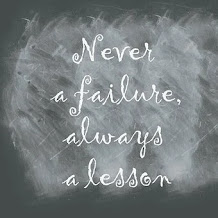So Covid presents a health gap between young and old, as well as a wealth gap between young and old. That's an undeniable conclusion from an Edward Jones and Age Wave multi-generational study of some 9,000 Americans.
It makes sense when you realize that Covid-19 has in six months killed over three times the number of Americans who died in all the years of the Vietnam War. Today Covid is the third leading cause of death, behind heart disease and cancer, but ahead of Alzheimer's, accidents and any kind of criminal activity including gun violence.
Most of the people who get Covid are under 40. But most of the people who die from Covid are over 60. A quarter of people over age 60 who come down with Covid end up in the hospital. But only 3% of those under 40 spend any time in the hospital. And they usually get better. It's extremely rare for someone under age 40 to die of Covid.
But if retirees have to worry about Covid, we are not by and large worried about our income. We're not losing a job or suffering a cutback in pay. Our incomes are secure, from Social Security, pensions, IRAs and other non-earned income. Plus, three-quarters of retirees own their own homes, half of us owning outright with no more mortgage. So only about 10% of retirees report that Covid has "negatively impacted" their financial security.
For our children it's a different story. They have lost over 20 million jobs. Some of those jobs have come back in the last two months. But further layoffs linger. And nobody knows how many are still working but are taking home half a salary, or even less.
In our case, out of four children, two are still working at full salary. One was furloughed for three months on a fraction of his salary. He's now back at work, hoping for the best. The fourth kept his full salary until June, then was cut back by 50%, and recently was cut another 15%. He still has a job, but there are no clients and there's not much to do . . . and he's fearing the worst.
 Our own experience reflects the broader picture. According to the survey, a third of Millennials say their finances have been impacted by the pandemic. Many of them have stopped making contributions to their retirement plan, and a significant number have dipped into their retirement account to pay current bills. Some adult children have even been forced to move back to their parents' home due to a job loss.
Our own experience reflects the broader picture. According to the survey, a third of Millennials say their finances have been impacted by the pandemic. Many of them have stopped making contributions to their retirement plan, and a significant number have dipped into their retirement account to pay current bills. Some adult children have even been forced to move back to their parents' home due to a job loss.The financial stress has also caused mental health issues. Over a third of young adults say they have suffered mental health declines since the pandemic began, compared to just 10% of their parents
It's another story for younger Baby Boomers who are not yet retired, but suddenly find themselves out of work. Some Baby Boomers Are Pressured to Cut Spending since they're too young for Medicare or Social Security, but they may still have children to support or college tuition to pay -- and yet their prospects for finding a new job are slim to none due to ageism. Even 50-somethings who are up on the latest technologies are often passed over in favor of younger people with fewer skills.
Meanwhile, almost half of retired Americans said the pandemic has made them worry more about their children. Some 24 million Americans say they have provided some financial support to their adult children during the last six months. Many of us have had no problem helping our kids. Our income has remained steady, but expenses have gone down, so we have more money sloshing around in our accounts -- money we can afford to give away.
But others have to put off more necessary expenses in order to help their kids -- delaying home repairs, foregoing new clothes, stretching out credit-card payments. Yet the majority of retirees still say they would offer financial support to their kids even if it did jeopardize their own financial future.
Many of us can afford to help our kids now, but we worry the economic impacts will linger, causing us to compromise our longer-term financial security. The majority of retirees see retirement not just as an end to work, but as a new chapter in our lives, when we can pursue new dreams, enjoy new freedoms, take on new challenges. Covid by itself puts a brake on pursuing new opportunities since it's hard to connect with a new group or a new cause when we can't meet people face-to-face. Any financial squeeze just further inhibits our pursuit of new opportunities.
There is at least one silver lining to Covid. According to the survey, two-thirds of Americans said the pandemic has brought their families closer together. The experience has inspired them to have important discussions about financial planning, preparing for retirement, end-of-life issues, and strategies for protecting and improving health. Perhaps we could also count our new proficiency in Zoom and FaceTime!
Also, we retirees have something going for us: We have seen a lot of problems come and go. We have a longer-term view. We realize that as hard as it is, this too shall pass.



















